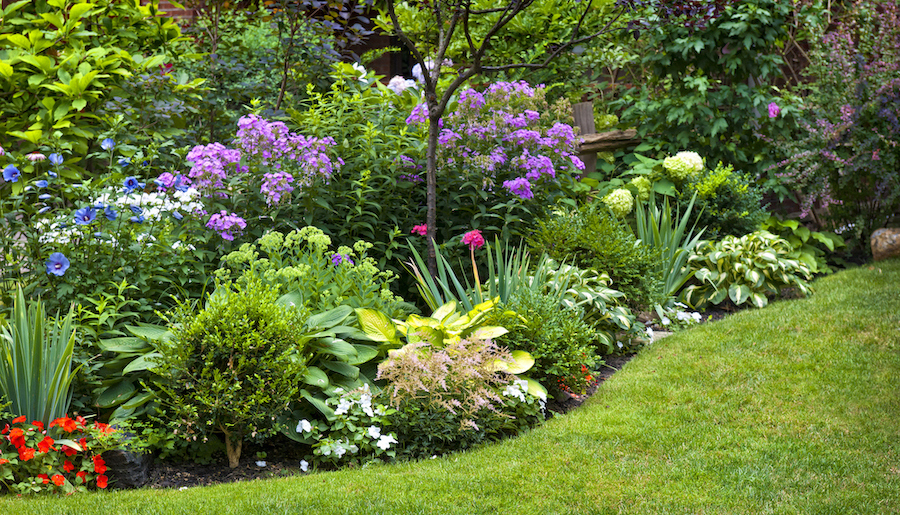A break in the heat had me heading to our garden, determined to tackle the weeds that were threatening to overtake the shrubs and flowers that until recently had enjoyed primacy of place in our backyard.
The upside to the task was that the ground, still damp from an abundance of rain, made pulling weeds out by their roots easy. As I pulled and prodded to my heart’s content, I was reminded of the words of St. John of the Cross, who compared pulling weeds up by their roots to the process of dying to old habits that impede our journey toward union with God. Ah, if only habits could be uprooted as easily!
Three hours later, as I stood back admiring my work, Jesus’ parable of the weeds (Mt 13:24-30) had me wondering. In the parable that Jesus told, he recommended letting the weeds grow with the wheat until harvest time when the wheat would be separated from the weeds.
I couldn’t help but think, “Clearly, Jesus was never a gardener, or he would have known that’s not the way it works.” But then again, Jesus wasn’t teaching his followers about farming, he was teaching us about the ways of God, which are completely averse to human experience and logic.
As Bishop Robert Barron pointed out in a recent homily on YouTube, Jesus’ parables were, to our way of thinking, about the “craziness of God’s love,” a love we find hard to fathom.
God also seems to have a penchant for lost sheep. What shepherd would leave 99 sheep to look for one who had wandered away? That makes no sense, unless you happen to be God, which we are not.
Another parable that Jesus used to show the radical nature of God’s love is the parable of the lost coin, in which a woman who has lost a coin invites all her neighbors to celebrate when she finds it (Lk 15:8-10). The celebration likely cost far more than the value of the lost coin, which would leave most people questioning her logic.
Then there’s the story of the prodigal son, whose father gave his youngest son his inheritance. After the son squanders it and returns home, the father runs out to meet him, puts a ring on his finger, has the fatted calf killed, and throws a party to celebrate his homecoming (Lk 15:11-32). We might be tempted to ask, “Who does that?”
Even Jesus’ mother, who was without sin, reproached Jesus after he went missing for three days, asking, “Why have you treated us like this? Your father and I have been anxiously looking for you” (Lk 2:48).
Using the art of storytelling, Jesus is reassuring us that the Father’s love is unconditional. However, that doesn’t mean we can do whatever we please and then presume that God will welcome us into his kingdom at the end of our lives. God’s love and mercy are infinite, but God can also see what’s in our heart and cannot be deceived.
Only God, whose love and mercy are infinite, would allow weeds to grow among the wheat, leave 99 sheep to find one that left the flock, or spend a small fortune to celebrate finding a lost coin.
What Jesus is telling us is that God gives us every opportunity to reform our lives and re-order our priorities so that we can enter the kingdom of heaven, even if it takes place near or at the end of our lives. However, the fact that we never know when the end of our lives will come should keep us vigilant.
In another parable, Jesus warned us that if the householder knew what time the thief was coming, he would not have allowed his house to be broken into (Mt 24:43). The lesson is clear. We need to make the most of every day and be responsible caretakers when it comes to tending the garden of our souls.
Many saints have used the garden as an image to describe their souls, which makes the words of St. John of the Cross about weeding a warning that we can take to heart. St. Thérèse of Lisieux referred to herself as a “little flower” and wrote that it was a privilege to tend the garden of her soul.
Jesus gave us an abundance of gardening tools through his teachings and waters our souls with the sacraments, especially the Eucharist. Since we know neither the day nor the hour when we will be asked to give an account of our life, the time to get to work is now, so that the garden of our souls will be free from weeds and bear fruit now and for all eternity.
Barbara Hughes is an award-winning author, retreat facilitator and spiritual guide. She lives in Virginia Beach and can be reached at [email protected].

